Best Cities To Live In Mexico In 2026
Mexico remains one of Latin America’s most compelling destinations, especially for North Americans. More than a million expats call it home, and tens...
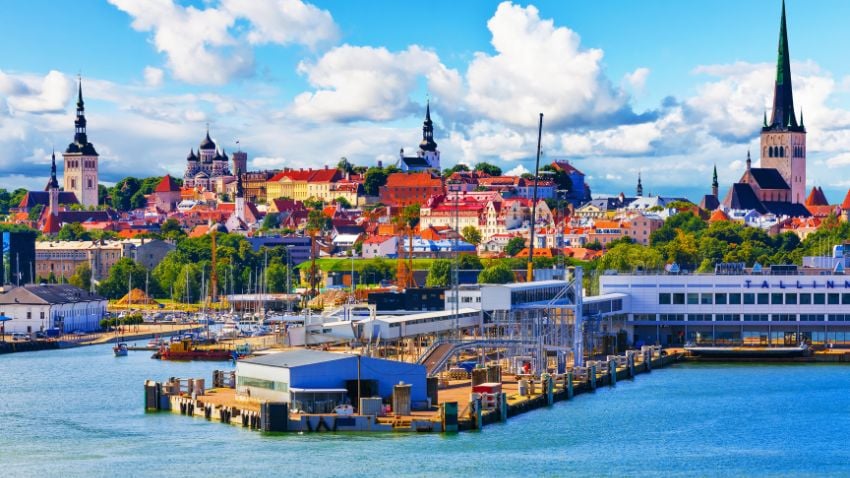
5 min read
Moving to a new country in search of a brighter future is a timeless human venture. The allure of new horizons and the promise of opportunities have pushed individuals from all corners of the world to foreign lands.
Within this vast landscape of global migration, two terms often come up – “expat” and “immigrant.” While they might be used interchangeably or even for political purposes, these terms carry subtle yet crucial distinctions that share the paths of those who move to foreign lands.
In this article, we’ll uncover the nuances that set these terms apart while also pointing out their commonalities. Also, we’ll delve into the motivations, challenges and triumphs that define their unique experiences.
So, whether you’re chasing after a better tax regime, a new home or simply an adventure, we’ll go through the ins and outs of these two terms for those who seek new opportunities outside their home country.

Kuldiga, Latvia
At a glance, being an expat might sound like an elite status for those who live a life of glamour and jet-setting adventures. But let’s break it down.
An expat, short for “expatriate,” literally means “outside their homeland.” In Latin, “ex” means “outside” and “Patria” means “native country,” thus the definition. In reality, this is a very reductionist view of the lives of expats, as they often involve more than just living somewhere other than their place of birth.
For example, expats go abroad for better work opportunities, the allure of new experiences, or even a simple wish to break away from the familiar routine. Picture the software engineer sent to South Korea for a project, a digital nomad exploring Argentina, or simply a retiree enjoying his golden years in Mexico.
Essentially, expats embrace the global stage and often hop between countries like scenes in a play.
On the flip side, being an immigrant might sound like families packing their lives into suitcases, embarking on journeys into the unknown. But this concept extends beyond that.
The word “immigrant” refers to someone arriving in a foreign country to establish roots there. In Latin, “in” means “into” and “migrare” means “to move from one country or region to another.” Just like “expat,” this definition is incomplete as it often overlooks the reasons for moving abroad.
Sometimes, this term has negative connotations, especially after the last decades of illegal immigration in developed nations. It’s evident that some immigrants are welfare-driven, but others go through the proper procedures and just want to escape wars, dictatorships and other unfortunate circumstances.
For example, immigrants may look to establish permanent residency in a foreign country. This journey is fueled by the pursuit of stability, opportunity and the desire to create a new home. Picture the Chinese couple setting up a shop in San Francisco, the Indian family opening a restaurant in London or a young Latin American couple who wants to build a family in Florida.
Essentially, immigrants are like architects who lay the foundation for their futures in new lands, typically for themselves and their families.
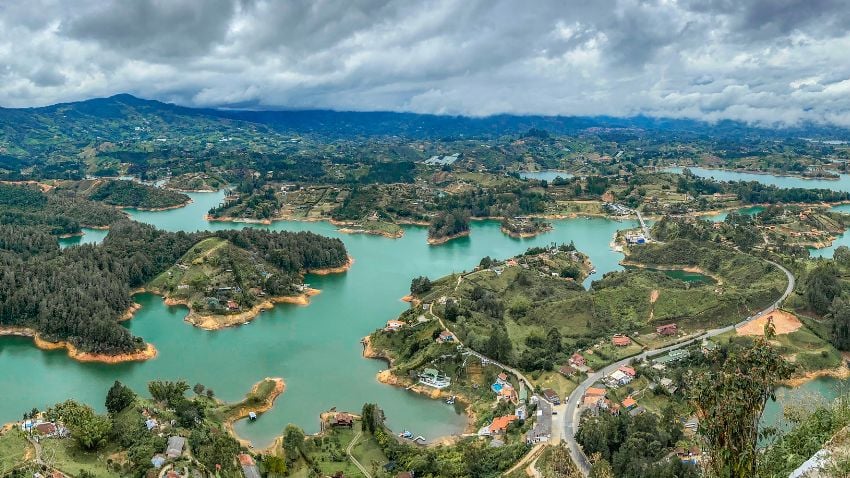
Peñol Stone in Guatape in Colombia
As you can tell, expats and immigrants embark on these journeys with distinct motivations and intentions.
Expats, often driven by the prospect of professional advancement and personal growth, view their time abroad as a trampoline to enrich their skill sets and broaden their horizons. They might be seeking the excitement of change, the experience of new cultures, or the allure of uncharted territories.
Immigrants, on the other hand, are focused on a different kind of journey. Their motivations are rooted in the desire for a better life, not just for themselves but often for their families and future generations. They see their decision to relocate as an opportunity to forge connections, create strong communities and immerse themselves in the culture of the new home.
Note that an expat and an immigrant might go abroad for the same reasons. For instance, an expat might want to escape his homeland in search of more safety, and an immigrant might move to a different country to earn a better salary. In this context, the reasons for moving abroad are endless.
Related content: Top 8 Locations Expats Can Build A Real Life Abroad
One of the most notable distinctions between expats and immigrants lies in the length of their stay and the level of integration within their host countries.
Expats are typically on a shorter timeline, with their stays spanning a few years at most. They might find themselves hopping from one assignment to another, enjoying the novelty of each new location and embracing the novelty of each new location. Their main focus is their work and personal development.
In contrast, immigrants adopt a long-term perspective from the outset. Their goal is not just to reside in a foreign country but to become an integral part of that country’s social fabric. Immigrants must invest time and effort into understanding the nuances of their host culture, learning the local language and forming deep connections with both locals and fellow immigrants.
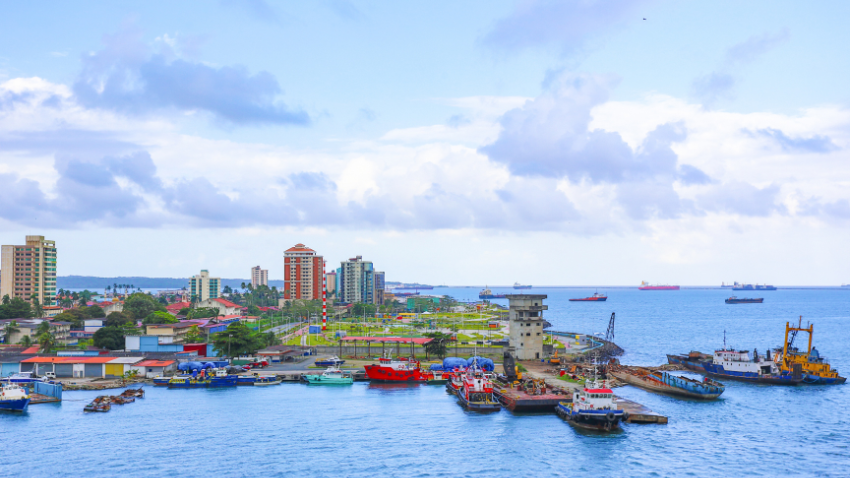
Atlantic Entrance to Panama Canal, Colon
When it comes to forming social connections, expats and immigrants may have commonalities but also many differences.
Expats frequently find comfort in the company of fellow expats, forming tight-knit communities that share common experiences and challenges. These communities serve as a safety net in the midst of change, offering support during the ups and downs of life overseas. However, the transient nature of expat life can sometimes make these connections feel fleeting as individuals come and go.
For immigrants, the journey toward social integration is multifaceted. They not only seek to connect with their fellow compatriots but also endeavour to build relationships with locals. This dual effort allows them to bridge the gap between their heritage and their new home. Immigrants might find themselves at community gatherings, sharing stories of their roots while also embracing the traditions and customs of their host country. However, the desire to hold on to their roots might make them not fully integrate into their home country’s society.
The question of identity looms large for both expats and immigrants as they have to juggle preserving heritage and adapting to their new surroundings.
Expats often find themselves navigating a complex terrain where their sense of identity is both preserved and challenged. They hold onto the customs and traditions of their home country, often forming small enclaves within their host cities that offer a taste of familiarity.
Immigrants go through a path that requires an ongoing evolution. Literally and figuratively, it’s like learning a new language — there are moments of confusion, breakthrough moments, and a constant effort to find the right words to express themselves.
Related content: What Are Sharia Laws And How Do They Affect Expats?
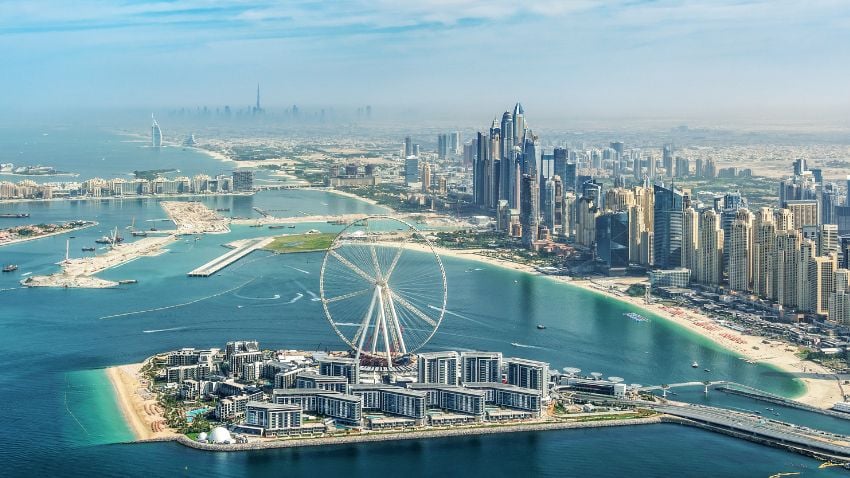
Dubai Marina and Dubai Eye Ferris Wheel
When setting foot on unfamiliar soil as an expat or an immigrant, there's a world of adventure and growth awaiting. However, this journey comes with its own set of challenges and opportunities for growth. Here are some invaluable tips that apply to both profiles, helping you make the most of your experience while fostering positive connections and enriching your life abroad:
Whether you're an expat or an immigrant, cultural sensitivity is paramount. Respect the customs, traditions, and way of life of your host nation. Adapting to local customs enriches your experience and demonstrates your commitment to being a respectful guest or an engaged member of your new community.
Creating a network that spans both your native/expat community and the local population can be incredibly rewarding. Engage with fellow expats to share experiences, exchange tips, and offer mutual support. However, don't limit yourself to expat circles. Building relationships with locals can provide deeper insights into your host country's culture, traditions, and way of life. Maintain your identity while becoming part of your new environment.
Respect is a universal currency. Whether you're an expat or an immigrant, treating others with kindness and consideration goes a long way. For expats, this means acknowledging that you're a guest in your host country, contributing positively to the local community, and learning from their way of life. For immigrants, it involves recognizing the value of their host country's culture while preserving their heritage.
Related content: How Do Canadians Legalize Documents For Immigration?
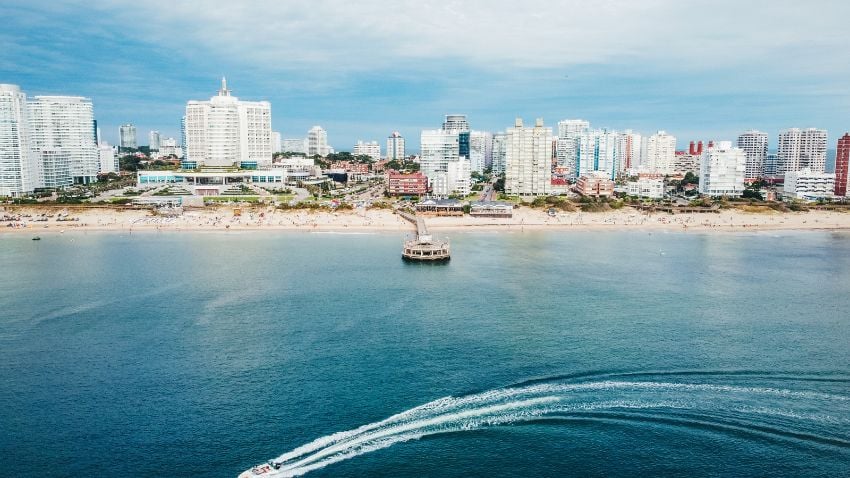
Punta del Este, Uruguay
The terms "expat" and "immigrant" tell a story of diverse aspirations and shared humanity. While these terms are often used interchangeably, they possess distinct shades of meaning that reflect the journeys individuals undertake to create better lives.
Expats, driven by growth and change, venture across borders like actors on a world stage. Immigrants, architects of their destinies, forge lasting connections and roots in foreign lands.
Through these lenses, we've uncovered the motivations, challenges, and triumphs that define their unique experiences. Whether pursuing a new adventure, professional growth, or stability, those who journey beyond their homeland offer a testament to the universal desire for a brighter future.
If you want the best intel from the expat world, including profitable offshore opportunities, little-known tax-saving strategies, and hard-won insights on immigration, passports, and Plan-B residencies, all delivered to your inbox every single week, then join our daily correspondence, EMS Pulse®. Currently enjoyed by over 84,000 expats and expat-hopefuls worldwide. Fill in the form below to join our newsletter free:

Written by Mikkel Thorup
Mikkel Thorup is the world’s most sought-after expat consultant. He focuses on helping high-net-worth private clients to legally mitigate tax liabilities, obtain a second residency and citizenship, and assemble a portfolio of foreign investments including international real estate, timber plantations, agricultural land and other hard-money tangible assets. Mikkel is the Founder and CEO at Expat Money®, a private consulting firm started in 2017. He hosts the popular weekly podcast, the Expat Money Show, and wrote the definitive #1-Best Selling book Expat Secrets - How To Pay Zero Taxes, Live Overseas And Make Giant Piles Of Money, and his second book: Expats Guide On Moving To Mexico.

Mexico remains one of Latin America’s most compelling destinations, especially for North Americans. More than a million expats call it home, and tens...

South Korea is far more than K-pop and K-dramas. It is a country known for outstanding food, from bustling street markets to high-end dining, as well...
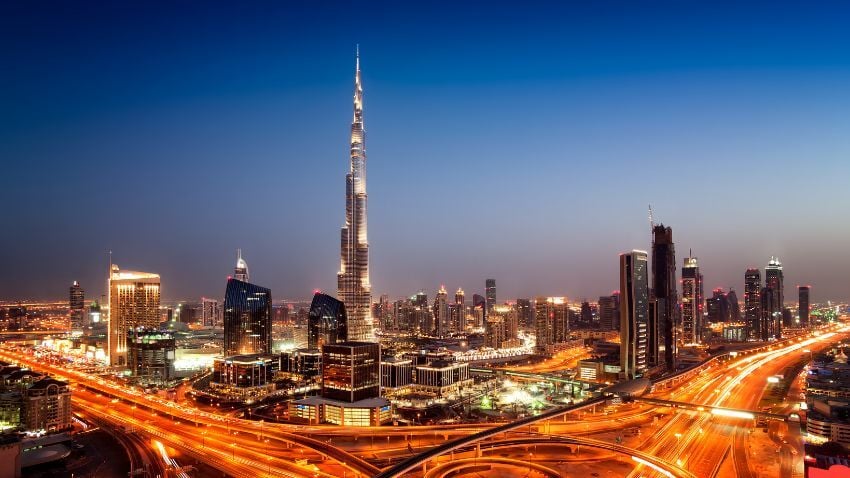
Asia is one of the most fascinating regions in the world for travel, offering an extraordinary mix of cultures, histories, and landscapes. From...